"the secret of getting ahead is getting started" mobile navigation
Don't wanna be here? Send us removal request.
Photo
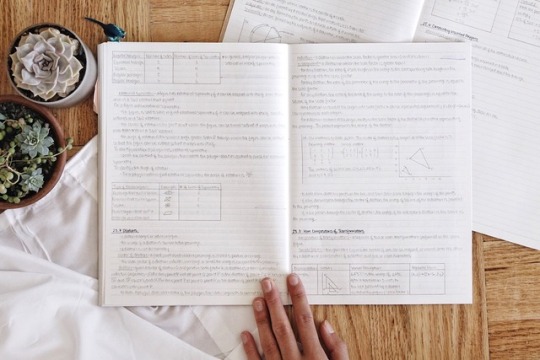
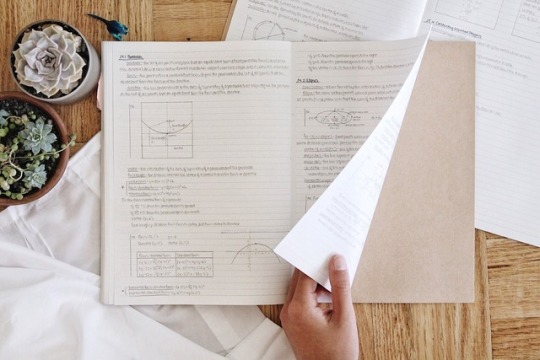
7.18.17
a few pages from my geo notes (plus a lil peek at some of the succulents i propagated recently!)
14K notes
·
View notes
Text
101 Study Tips
Take advantage of that lower workload in between exam periods to make good notes, clean your house, get work experience and do the things then rather than when you’re busier
Use Highlighters instead of pens to save time. Or vice versa depending on you
Change the timing in the pomodoro technique to suit you rather than the other way round
Use a planner to organise your day
Work out what time of day you study best. You could get up and study in the morning if you’re that sort of person
Attend your tutor or form sessions. Even if you don’t do much in them, you can
Keep your planner small and carry it everywhere
Even better, put your planner on your phone
Don’t sulk if you fail, look back at why you failed and try to improve
If you get distracted by wanting to do something when you should be focusing, write it down. It gives you a checklist of things to do later
Do these things on the checklist in your study breaks
Answer questions without your teaching asking you to
Read about your subjects outside of your classes, especially in high school
Sit at the front of the class room
Don’t sit by yourself in class
Get an early nights sleep
Or at least use sleepytime to get a good time frame
On school days when you wake up, get up straight away, it stops you lazing about
Work hard from the start of the year. There isn’t a time to slack off
Try spaced repititon for learning key facts or a revision schedule
Have snacks and a drink during study sessions. Preferably water.
Summarise and make all your notes onto smaller bits of paper for revision, it helps you recognise what the important facts are
To avoid study stress, take breaks and avoid studying for more than two hours a day
It’s also good to have a day where you don’t study at all once a week
Don’t schedule too far in advance, you’ll just get busy in the meantime or change your methods
When you’re feeling too stressed to work properly but not studying stresses you out, do easier tasks like reviewing flashcards or watching videos on your course
Do as much of your work in school as possible
Prioritise your classes. Especially if you have loads
Make any big habit changes you’ve been thinking of at the start of a term or new year
Study a little before bed, you’ve probably seen that study that says you remember more just before bed
Only make flashcards of the things that you don’t get or are important, not everything
Use online sites like Brainscape, Memrise, Anki or Quizlet for flashcards between devices
Print off your powerpoint slides before a lesson
If you can’t do that, read ahead in the textbook
The syllabus is your guide, so use that as a framework for your revision notes
Your stress and nerves are normal, don’t worry
Aim to finish your revision a week before your exams, it makes you start earlier and finish earlier, you also can rest before your exam
When you pick your subjects, choose the subjects you love
Don’t drink alcohol when you’re studying or any type of drug while studying
Don’t listen to how much everyone is studying. A lot of people big it up or say they do none, usually both aren’t being truthful
Take messy notes in class and neaten them up later
Or take your notes online or on a computer
Have a folder to put your loose sheets and handouts in
Keep your to do list and schedule all in one place, whether that’s a book, app or phone
If you fall behind or are ill a lot, your classmates are your friends for a realistic description of what you’ve missed
When at school, know all the places you’d like to study in case one of them is busy
Don’t work in your bed if it makes you tired
Or work in your bed if all your seats are uncomfortable and it’s distracting
Don’t have too much coffee! And energy drinks are just terrible for you so maybe not have those either
You don’t have to be truthful to your actual opinion in essays, just go for what option has the most points
Listen to your teacher
Have your window open, the fresh air helps
Use practice papers and questions, they really help
Try to teach others as well or if you can’t, explain it in your own words to yourself
Combine more than one technique, so that the weaknesses of each method gets covered by another
Seriously just listen to your teachers
Check your emails every day
Set realistic goals and try not to be too harsh and unrealistic about the time you’ll spend achieving these as well
Use loud and annoying alarms to get you to do things
If you have to read, read out loud rather than in your head
Use a hair tie if you have long hair to keep it out of your face
Keep clean and get dressed for studying
Don’t waste your term making your notes pretty, if it helps, make sure the benefits outweigh the time it takes
Study when you can. Don’t study if you’re too exhausted to do so.
Keep your desk as clean as you can
Know your sources of motivation. Possibly find a way to put that in your study space.
Attend as many classes as possible and don’t skip
Keep yourself busy with stuff that isn’t studying
Reward yourself for your hard work
Before you go back to school, start to wake up earlier so you’re ready
Wear comfortable clothes to school
Or wear whatever makes you feel good, feeling bad can be pretty distracting
Always think about the next step early, whether thats getting work experience, choosing subjects, finding a job or picking a thesis
Always eat breakfast
And always eat lunch too! Especially at school
Do whatever is best for you. Don’t follow a studyblr trend, do what’s best for you.
Make your studying a habit. Do it nearly every day for a long time and it’ll begin to feel more like second nature
Get to know your teachers if you can
And don’t be afraid to ask them for help outside of a lesson, either by email or afterwards, it helps a lot
Look at the types of questions you often get wrong as well as the topics you keep missing out on
Keep a spare bit of food in your bag, I usually have some sesame snaps in my bag as a small snack so I don’t have to get up to get food
Make productive friends and people with similar goals to you
When revising, revise everything and then focus on your weak points
Don’t spend too long on tumblr, and if you are right now, then this is your reminder to log off!
Don’t panic when you don’t know all the answers in a test, do you really need 100%?
Break your studying into smaller bits and spread it out over time to avoid headaches, burnout and all the problems that come with it
Eat better. Get enough fruit and vegetables
Don’t forget about Protein, from meats, nuts, etc. it helps a lot
If you’re falling asleep in class, I usually drink water, pinch myself, take lots of notes and fidget to keep myself up
Regularly clear out your bag, because a lot of stuff builds up
If you’re a more artistic person, use drawings like visual notes, mindmaps, timelines and literal drawings to help you study
If you study with a friend, quiz each other
Study on public transport if you can, notes and flashcards on phones are good for this
Don’t neglect any of your subjects, make sure they all get some time spent on them
Also focus beyond your first exam, it’s easy to overprepare for the first test and then not be ready for the rest
When taking a test look through it quickly before hand
Remember you don’t have to take the test in order
Review your notes all the time, review helps the memory
If you want to pull an all-nighter see if you can do it in the morning or day instead, and don’t do it the night before anything important
Always look at the details, especially if you get a mark-scheme or guide for your assignments
Constantly be taking on new improvements and trying to improve your methods
39K notes
·
View notes
Photo
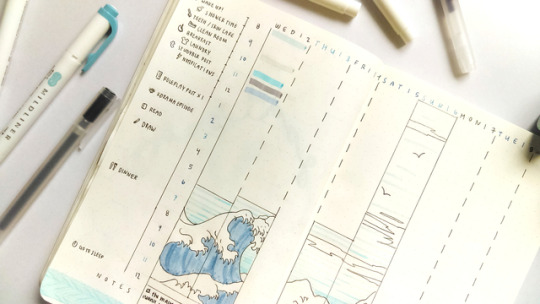
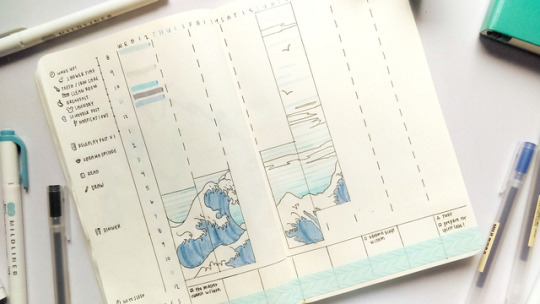
➸ 07.12.2017 | I decided to try to combine a weekly spread with a habit tracker to help me get into a daily routine - and this was the result! The areas that are blocked off are times when I have work, but everything else is meant to have something going on. It’s been overcast all day so my lighting isn’t the best ; u ; but I’m looking forward to more productive days?
2K notes
·
View notes
Text
Resources to Get You Through the School Year!
I struggle with finding a list of resources to use during the school year, and I find that these help a lot for me when I procrastinate my time away…
As a sophomore in high school, my favorites include:
1) Castle Learning
If you’re lucky enough (but also unlucky at the same time) to have a teacher use castle learning, take advantage of it! the self - studying choice is so great to review for tests in class or exams. The program will give you options for what chapter or unit to study from too. the only downside is that my teacher gave us 300 questions per week.
2) Hemingway Editor
This website is perfect for essays. It underlines all issues with your essay and analyzes your writing level and words you use too often. its a great way to check for passive tone.
3) Localingual
The page opens to a picture of a map. By clicking each of the countries, you can hear phrases and names of countries and capitals in both female and male voices. Be weary user - submitted audios. This resource is perfect for language learning or getting familiar with popular AND unpopular languages. You can even hear the country’s national anthem!
4) Symbolab
This graphing calculator works well when your’s is dead, and also has a color feature for each of the lines. You can save your graphs.THE WEBSITE GETS EVEN BETTER BECAUSE you can have a different, normal calculator for all different kinds of maths (Algebra, Trig, even Chemistry) with steps. IT DOESN’T STOP THERE THOUGH: you can even use a NOTEBOOK to keep tracks of topics and problems. It also has a group feature for working together and cheat sheets.
5) Pinterest
Not only can it present you with recipes to help you eat healthy, it can also give you tips on how to take exams and understand them (SAT vs. ACT), it can also give you more studyblr inspiration and tips for writing essays. For language learners, it gives great resources of words or phrases that are updated.
6) Youtube
You can find how-to’s, PBS Crash Courses in several subjects (the Chemistry series is by Hank Green and the Literature and US History series is by John Green and they’re my favorites). Tons of information can be found for every subject, just make sure you don’t get distracted!
7) Wolfram Alpha
This is so good for all subjects and has endless information all subjects! Great for trying to understand an aspect of a lesson, too.
8) RefMe
This is great for helping writing your citations! I use this v often too. Not much to say about this, but it’s pretty simple.
9) Spotify/Podcast sites or apps
For spotify, you can find white noise or lofi music that you wouldn’t find on apple music. There’s a student discount for premium (50% off). Podcats are great for expanding your knowledge or getting in the know for politics, and Spotify has some smaller ones too! Spotify actually has great language ones too.
10) Google Docs/Google Keep/Google Drive/Google Photos
THE BEST APPS FOR DOCUMENTS. These are all free with a Google account (god bless) and they give you 15 GB of free storage, and you can upgrade.They all sync automatically across all devices, too. When I’m on my phone, I can easily edit a document, which is great when it’s due that day (THAT’S SAVED ME SO MANY TIMES TOO). I love these apps sm.
Hope these help you guys, let me know if any of them saved you! I know the social media ones were pretty obvious but you never know! Reblog if used!
2K notes
·
View notes
Photo

Hey babes! As requested, here’s a roundup of my favorite study tips that I’ve picked up over the years. Happy studying!
studying for exams
Create a study group and meet regularly (not just before exams!)
“Teach” the material to someone – your pet works well!
Keep a list in the front of your notebook/binder of topics or points that seem important enough to be on the exam, that confuse you, or that you’re interested in so you can go back and study them.
Study a little over a long period when you can, instead of cramming for an entire exam in one night.
Create a “cheat sheet” of important information for studying on the go.
Try the Pomodoro method to keep from getting burnt out.
Try creating a timetable for studying so you don’t spend too long on a certain subject and run out of time for the others.
Knock out your least favorite subject first, so you can have the rest of the day to work on more enjoyable subjects and relax.
Create a study guide for the class using Google Docs that you can all contribute to.
If you’re unclear about something, Google it. There’s more than likely a video that can explain it more clearly than your textbook.
Keep a running list of questions to ask during office hours, & actually go!
Study in a public place (the library, a coffee shop) so that you’re less likely to get distracted watching cat videos knowing people can see what you’re doing.
Get plenty of rest the night before an exam! Cramming is not worth it.
homework tips
Write everything down, even if you think you’ll remember it.
Keep a planner and check it first thing in the morning.
Do the work for your least favorite class first so that it’s out of the way.
Start early. Way earlier than you have to. That way you have time for delays, to start over if you have to, or to take a night off to go to a party.
If it’s something quick, like a worksheet, do it as soon as it’s assigned.
If you have a long break between classes, use it to work on small assignments that you can get out of the way.
For big projects, like papers and presentations, break it up into smaller pieces. “Write thesis” is a lot less daunting than “write 8 page paper”.
Do homework before you study, so you’ll know what you’re confused about and need to pay more attention to.
If there’s an option to buy an ebook rather than a physical copy of the textbook, do it. Not only is it usually cheaper, but it frees up space in your bag and you can search for specific terms easily.
If you have a lot of work to catch up on, set aside a block of time to knock it all out at once (with breaks, of course).
If all the homework for a class is due at the end of the semester, give yourself due dates for the individual assignments so you don’t put it off and have to do it all at once.
Install a site blocker so you don’t get distracted from your work.
If you have an online class, schedule a regular time to work on it as if it were a traditional class.
Don’t just Google your way through the homework! It may save time now, but it’ll only make things harder when it’s time for exams.
even more tips!!
More Study Tips
Time Management
Intensive Revision (Cramming)
Public Speaking
Writing Papers Quickly
Study Habits
Final Exams
6K notes
·
View notes
Photo

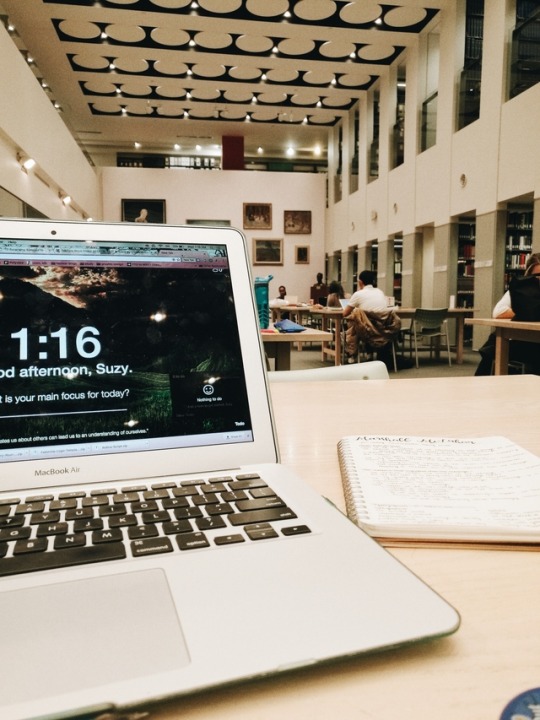
04.18.17 Watched Beauty and Beast today and I loooooved it ! But also failed a road test oops ~
2K notes
·
View notes
Photo
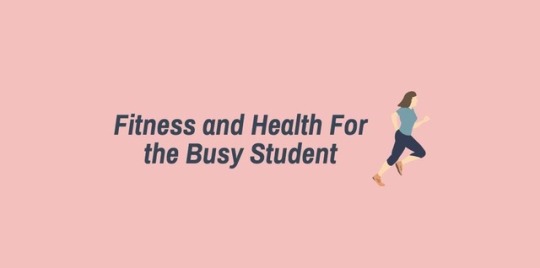
When you are balancing classes, homework, extracurriculars, and a full/part time job, it can be hard to find the necessary time to look after yourself. The important thing is to make good use of the small chances you get during the day! I’ve broken it up into time chunks, to make it easier.
Edit: I want to be clear that this blog in no way glorifies eating disorders and THE TIPS IN THIS POST ARE NOT INTENDED TO BE USED IN NEGATIVE OR UNHEALTHY WAYS. If you are suffering from an eating disorder, you can contact someone to talk to here. If you are a pro-ana blog, please do not interact with this post.
Two Minutes
Brush your teeth/hair etc
Wash your face, or splash cold water on it
Drink a glass of water
Stretch! (especially if you've been sitting down for awhile)
Five Minutes
Take the stairs!
Jumping jacks/squats (I do them all the time behind the counter at work!)
Take a break and eat a piece of fruit
Ten Minutes
Walk instead of bussing
Reapply sunscreen if needed
Take a power nap if you need one
Do a short meditation
Twenty Minutes
Find a short yoga routine on youtube
Go for a quick run
Take a longer nap
Write in a journal/ Notebook if that's your thing
Thirty Minutes
Workout
Do a full yoga routine
Run/walk around your block a few times
Take the time to prepare a special, healthy snack for yourself!
One Hour or More
Workout weights or cardio
Tidy your room/ office space
Catch up on other duties (to relieve stress)
Prepare a meal and make enough for a lunch the next day
As its summer in half of the world, I’d like to remind my friends in the northern hemisphere that health in the heat means drinking cold liquids to stay hydrated, wearing sunscreen to prevent burns and skin damage, and spending time in the shade throughout the day!
Take Care of Yourselves!
7K notes
·
View notes
Photo
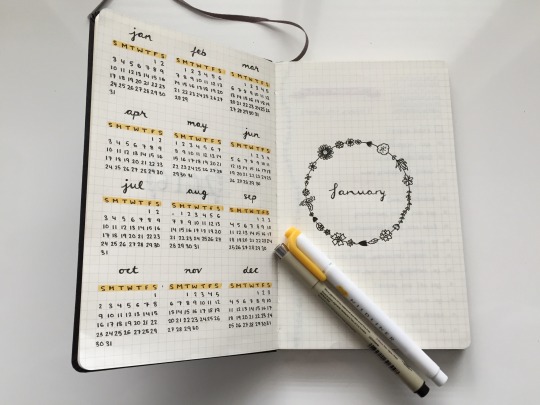
starting my journal for next year!
16K notes
·
View notes
Text
Would You Admit You? genericappblrurl’s College Essay Masterpost
Here it is: the college essay masterpost. Keep in mind that if you’ve written an essay that fits the description of any of the “don’t do this!” bits, it’s not a reflection on you as a person. The makings of a good college essay are, at times, entirely counterintuitive, so many of the errors in here seem completely justified.
The most important thing to consider when writing a college essay is the degree to which you pass the Turing Test. Basically, do you sound like a person? Even if you think the answer is yes, spoiler alert! There’s a decent chance it’s no. Why? Well, consider the fact that each admissions officer at any selective school reads hundreds, probably thousands of essays per year. Now, consider the fact that most of them have been doing their job for multiple years. That’s a heckton of essays, my friends. That’s so many. And after a while, they all seem to blur together. Now, you might be thinking, hey, but my essay talks about an extremely personal struggle/experience/situation!!! Well, yeah. But so does literally everyone else’s. Even if the specific content of your essay is different, the essay structure itself is still the same. If you designed a computer program that could write college essays, the resulting pieces would look just like the vast majority of college essays that land on any given admissions officer’s desk, and they’d end up in the same sad pile. With that in mind, let’s get started.
*****************
W R I T I N G
~~~~~~~~~~
The Common App Essay/Personal Statement
From an email I sent to a student whose essay I reviewed: “Something to keep in mind is that the amount that any essay says about you is entirely dependent on your writing. You could write an essay about bagels that says a lot about you; you could write a deeply personal piece that says nothing. The mistake that many applicants tend to make is thinking that the subject matter itself has to be something profound; oftentimes, essays like this fall short because their authors put all their energy into writing about something personal and barely any of it into writing well.”
The common app essay/personal statement comes with a few prompts that, in many cases, immediately result in a “Hey! I know exactly what to write about!” And, in many cases, this immediate response is way off base. The prompts are designed as such; these days, when almost everyone has good grades and SAT scores, the essays are the only real way to tell who’s the very best. Even though your story - that immediate response - may be intensely personal, a key component of who you are, it’s still an immediate response to a prompt, and chances are every other person who chose that prompt immediately thought of a similar story from their own life.
Prompt 1: Some students have a background, identity, interest, or talent that is so meaningful they believe their application would be incomplete without it. If this sounds like you, then please share your story.
Key Ideas: Spin it differently, think smaller, keep it positive.
Unless you have a story on par with the plot of Jane The Virgin, be careful. Your struggle to improve your grades/win that competition/make friends/overcome your fears just isn’t that compelling. That doesn’t mean it’s not important; it just isn’t good college essay material unless you can find a way to spin it differently.
If you’re writing about an identity or talent, be sure to think first about the other people in the world who share that identity or talent. What makes your story different?
If you’re writing about overcoming an obstacle such as mental or physical illness, don’t make it a pity party, but don’t become detached. What makes your resilience unique?
Now, something that a lot of people don’t realize is that this essay can also go smaller. You wouldn’t be you without your love of bagels, hatred of carpeted floors, etc. so don’t shy away from writing about something other than a Deeply Personal Struggle Or Experience. These are often the essays that go far, solely because they go against the grain and admissions officers are tired of the monotony. These are the essays that get a “Hey Sue, look at this one!” And voila, a second read.
One other thing to note is that while this background may be painful - mental illness, deported parent, etc - you need to find a way to end on a positive note. A pity party won’t get you in. Regardless of how much the content of the essay makes your admissions officer cry, what they’re looking for is resilience.
Prompt 2: The lessons we take from failure can be fundamental to later success. Recount an incident or time when you experienced failure. How did it affect you, and what did you learn from the experience?
Key Ideas: Plot twist, think smaller, get weird.
The difficulties with this prompt are similar to the first - the essay that first strikes you is just not that compelling. Nobody wants to hear another “I failed a test and studied hard and aced the class!!” essay. Unless your specific incident of failure was wholly unique - maybe you didn’t pull the parachute string on time when skydiving and are now writing this with two broken legs - you’re going to need to think of something else. There are a few easy ways to do this.
Plot twist. You failed in a common way, but your response was super weird. Introduce this weirdness from the beginning. Pro tip: studying hard after failing is not weird.
Think smaller. This one is more creative writing than life story. Think of a really tiny instance of failure - maybe you slipped on the stairs! maybe you cut one nail slightly too short! - and write a mock epic.
Get hella experimental. Use an unconventional format - I know a girl who wrote hers as a series of limericks - or write from an unconventional perspective.
There are certainly other successful essays that aren’t written as one of the three outlined above, so don’t be afraid to do what you think is best. Still, remember to keep in mind the necessity of setting yourself apart.
Prompt 3: Reflect on a time when you challenged a belief or idea. What prompted you to act? Would you make the same decision again?
Key Ideas: Stay humble.
The biggest mistake I see with this prompt is the tendency to wax philosophical & come across as someone who thinks they’re profound. Pro tip: that’s not a good thing. If you think you have something profound to say, write about something else. Seriously. It comes through & it’s not flattering. Note that this is absolutely different from being genuinely passionate about something; let your passion show, but curb your self-righteousness.
Prompt 4: Describe a problem you’ve solved or a problem you’d like to solve. It can be an intellectual challenge, a research query, an ethical dilemma - anything that is of personal importance, no matter the scale. Explain its significance to you and what steps you took or could be taken to identify a solution.
Key Ideas: Stay humble, avoid waxing, let your passion show, get weird.
Many people who choose this prompt use it as an opportunity to wax philosophical about a Big Bad World Issue, but unless you have a truly unique take, don’t bother. Admissions officers have read thousands of essays about the importance of solving world hunger, widespread ignorance, etc. so unless they’ll actually gain something new by reading yours specifically you should steer clear. Some other options for this essay include:
Choosing a smaller problem
Dramatization
An opinion piece on something trivial
And, again, there are many more beyond these, but this is a good starting point if you find yourself stuck.
One other thing to keep in mind is authorial distance. You want to stay close to whatever you choose to write. It needs to feel personal, whatever it is. It needs to feel like you.
Prompt 5: Discuss an accomplishment or event, formal or informal, that marked your transition from childhood to adulthood within your culture, community, or family.
Key Ideas: Plot twist, think smaller, get weird, stay close.
A story of this nature is obviously personally important by definition, but it’s remarkably easy to write one that falls flat and blends in with the crowd. The most prominent issue I’ve seen with essays that use this prompt is the tendency to step back from the event in question through word choice and excessive summarization. What this essay calls for, fundamentally, is a sense of closeness and a feeling that we, as readers, are experiencing it for ourselves. If you’re not ready to get intensely personal, choose a different prompt.
For those of you who choose to write about a formal event or accomplishment, you have two workable options. First, you could write about an event that, while formal, is obscure. Maybe it’s a family tradition to run the perimeter of the city on your 15th birthday while carrying a pineapple. If your event/accomplishment falls into this category, you’re good to go. If it doesn’t, though, you’ll need to tell a truly unique story about the well-recognized event. This can be done through either plot or structure. Did something weird happen? Good. Did everything go according to plan? Spin it differently. Write about your bat mitzvah from the perspective of some relevant non-human object. Write about registering to vote in the format of a screenplay. Bonus points if you have a weird story and an interesting framing device or style.
For those of you who choose to write about an informal event or accomplishment, you’ll have an easier time setting yourself apart because you could write about literally anything. Still, the advice above holds. You’ll either need a story that, plotwise, goes in unexpected directions, or you’ll need to choose a style or framing device that makes an essay about something standard seem like a New York Times bestseller. Ultimately, your goal is to make the admissions team want to keep reading. How you do this is up to you.
Summary: Make the reader care. Make the reader want to keep reading. Seriously, that’s it.
~~~~~~~~~~
The “Why _______” Essay
A good “Why _____” essay shows what you care about. These essays are usually much shorter - generally only about 150 to 250 words - so being concise here is key. As a general rule, if what you wrote could be found in a brochure, delete it. Reading the brochure and liking what it says doesn’t make for a compelling essay. Instead, think smaller. Write about a conversation you had, an interaction you witnessed, etc. and do so in a personal manner. Keep your authorial distance as small as possible. Get weird. Choose a formatting style that fits your story. If you can say something to the admissions officers that they haven’t already heard before, chances are you’ll do much better.
For a more detailed procedure, click here.
~~~~~~~~~~
The Identity Essay
Several schools ask for a short essay about an identity that affects/matters to you in some context. The same advice from the Common App applies to this essay as well. If the identity itself is not unique, write about a unique way in which you interact with it. If you’re given a specific context, write about an identity that normally would not be associated with that context. For example, in my RA application, I was asked to write about how some aspect of my identity influences how I approach conversations about diversity. I could’ve written about being bisexual, Jewish, etc, but instead I wrote about being white and how my whiteness influences the ways in which I approach these conversations. Remember, finally, to keep it personal; don’t wax philosophical about the identity in question. For bonus points, see if you can somehow mention other identities somewhere in there. This isn’t mandatory, but showing that you understand intersectionality is always a plus.
~~~~~~~~~~
The “Respond To This Quote” Essay
This is a super common supplemental essay question, and it’s easy to get stuck when responding to it. The process that I used for this essay went something like this:
Brainstorm. Read the quote and write down everything that comes to your mind in response. This should be closer to a bulleted list than a paragraph; multiple thought trains are what you want to see. To really push yourself, set a timer for ten minutes and force yourself to write for the whole time.
Take a break, then brainstorm again. You’d be surprised at how much you can generate when forced to sit and write for a while.
Look at your clusterfuck of thoughts. Physically cross out anything that doesn’t seem writeable. Physically put a star next to anything you think you’d be excited to write. Don’t think too much about this; go with your gut.
Don’t waste time trying to find the “best” idea! Close your eyes, stick your finger on the page, and write about whichever starred idea is closest to your finger.
Write! And write! And write! Your first draft should be terrible and messy and structurally questionable! Just write!
Take a break, then read over what you wrote and figure out what it says about you. Now, what do you want it to say about you?
Figure out how to get from point A to point B. Which words should you change? Which sentences should you delete? What framing device would best convey what you want to convey? Form the completest plan possible.
Execute!
Read it again, repeat steps 6-9 as necessary until you’re happy.
Some extra tips: this essay is about you, not the quote. The quote is a framing device to get you to reveal more about who you are as a person. Thus, tone and style are crucial. Feel free to take stylistic risks; feel free to get weird. This isn’t a literary analysis.
~~~~~~~~~~
Any Essay That Requires You To Discuss A Book
is not a book report. See extra tips above.
~~~~~~~~~~
The “Talk About A ______ You Love/Admire” Essay
Since this one is super open-ended it’s hard to give concrete “do this and don’t do this” type advice. In general, your goal is still to make the reader want to keep reading. By the end of this essay, your admissions officer should desperately want to google the noun in question, but keep in mind that this is, again, an essay that should reveal something about you. What the reader gets from this essay should exceed that which they could find on Wikipedia, in a biography, etc.; you have to show passion. This is not the place to stay detached or academic; get personal. Love and admire are two strong words and you need to do them justice.
If you find yourself falling into the Wikipedia trap, consider:
Telling a story about [noun] that’s specific to your life. This is always a good bet tbh
Examining your narrative distance. Care harder!
Making a list of things you love about [noun] using the timer method I described in the quote essay section. Go with two minutes instead of ten. This may lead you to see something you wouldn’t have thought to write about beforehand.
Just writing. Stream of consciousness, no pressure to make it good writing. See where it takes you. See which format you naturally fall into.
If all else fails, choosing a different topic.
~~~~~~~~~~
The Extracurricular Essay
Unless you do some completely unheard-of independent work, you’re not the only one who’s participated in a given extracurricular activity. Given this, you have to set yourself apart in other ways. Many of the main problems seen in various common app essays resurface in this one: standard perseverance stories, excessive summarization, etc. Depending on the wording of the prompt, your response will be slightly different, but regardless of wording keep in mind that the essay is about you and your relationship to the activity.
~~~~~~~~~~
The Leadership Essay
This is a fairly common category as well. When writing about leadership, you’ll have a much higher success rate if you choose a narrative-based essay over one that merely summarizes your experiences. The same advice for all these other essays applies here, too; in order to set yourself apart, you need to tell a different story or you need to tell a familiar story differently, bonus points if both. Stay humble. Show instead of telling. Convince the admissions team that leadership is part of who you are, not just something you did to get into college.
~~~~~~~~~~
Stanford’s Supplement
What Matters To You & Why?
Tell a story. Tell a story they haven’t heard. This is truly the place to be yourself. It doesn’t matter what you indicated as your intended major; it doesn’t matter what your extracurriculars were; just answer honestly. I wrote about discovery, I have a friend who wrote about bagels. Regardless of the topic you choose, you have to convince the reader that it actually does matter to you. Keep your narrative distance as small as possible unless you’re making a deliberate stylistic choice; be as vivid as possible in your imagery. Make whatever it is matter to the reader too. Make it feel real.
Intellectual Vitality
This post is great and says everything I would’ve said anyway. Key idea: show them how your mind works.
Letter To Your Future Roommate
Be as weird as you are. Let’s be real: nobody reads a letter from someone that starts with “
~~~~~~~~~~
Other Essays/In Summary
If you’re facing a prompt that doesn’t appear on this list, take the general advice and run with it. In summary:
tell a story that hasn’t been told before
you don’t have to write about something inherently ~profound~
keep a close narrative distance unless you’re making a specific & deliberate stylistic choice not to
what matters most is that the reader wants to keep reading
avoid waxing anything other than passionate
vivid imagery is your friend
summarization is hardly ever useful
personal doesn’t mean unique
don’t be afraid to stray from the “traditional” format
have fun with it!
*****************
E D I T I N G
~~~~~~~~~~
Common Questions
What do I do if I know a phrase sounds weird but I don’t know how to fix it?
Option 1: Read the phrase out loud. What do you want it to convey? Write several different variations of this on a note/side document and see if any of them work better. Adjust surrounding phrases accordingly.
Option 2: Delete the phrase altogether and read the piece without it. What meaning is now missing? What sort of transition is needed? Try to fill the gap. Does it work? If not, delete the replacement, take a ten minute break, and try again.
Option 3: Check the bits surrounding the offending phrase. The root of the problem might lie elsewhere, so don’t get yourself all worked up trying to fix the wrong part!
Option 4: Ask someone for their opinion. Maybe they’ll see a solution that wouldn’t immediately have crossed your mind!
What do I do if a friend/parent/mentor says that a phrase sounds awkward but I don’t think there’s anything wrong?
Ask. Always ask. Unless they gave you specific guidance, you won’t have any idea how to fix this unless you ask. There’s no shame in this; everybody wants you to succeed! If you still don’t see the problem, getting multiple other opinions can be helpful. Ask another friend/parent/mentor to read over the section in question, and if they do point it out but don’t give useful feedback it’s best to delete it and try Option 2 above.
I’m way over word count, but I don’t want to compromise the integrity of the piece! How can I cut down effectively without losing anything important?
How many words do you need to cut? If you’re more than 20% over word count, consider starting from scratch. If you’re not:
Identify redundancies. Highlight these and find a way to consolidate them.
Read your introduction, if you have one. Oftentimes, these words just take up space and don’t add anything to the piece. If your introduction is just a result of years of being told that you need one and doesn’t actually add anything meaningful to the essay, delete it all. Starting from the middle can actually be surprisingly effective!
Same goes for the conclusion. You don’t need to wrap things up like you would in a literary analysis or a research paper; you just need to end strongly.
Identify phrases that could be simplified and simplify them. Did you lose anything important? If so, revert the edit, highlight the section, and come back to it later if you’re really pressed for words.
Contractions are fine. Seriously.
Identify sections that just straight up don’t need to be there. Many people add unnecessary clarification, pointless parentheticals, etc. Not only do these deplete your word supply; they clutter your essay and make it less enjoyable to read. Don’t feel bad if you end up cutting entire paragraphs!
If you use “very” at all, cut it & replace the following words with a stronger one. This one is very important crucial!
Is it okay to be way under word count?
Technically yes, but practically it’s rarely the case that you’ll be able to answer the prompt meaningfully without at least getting close. If you feel done, let yourself be done, but revisit the piece later to confirm. Maybe you’re the master of being ridiculously concise, but chances are that an essay that doesn’t even approach the word limit doesn’t effectively answer the prompt.
~~~~~~~~~~
General Advice
Go through line by line and mark everything that leaves you less than satisfied
Read like an admissions officer. Would you admit you? Do your best to rid yourself of personal bias and just read as a reader.
Unless you’re working with someone who does this regularly, get at least two opinions on anything you write from two very different people in your life. You have no idea who’ll be reading your essay in the end, so a variety of voices in your feedback can be useful.
*****************
R E A D I N G
~~~~~~~~~~
When a friend asks you for feedback on an essay, it can be difficult to remain impartial while editing. The most important thing to keep in mind, though, is that lying to spare their feelings will only do them dirty in the end. So yes, be as critical as you need to be. If something sucks, tell them. But - and this is important - stay friendly. Stay pleasant. Stay constructive. Don’t say “this sucks,” say “I think this section should be reworked so that ______.” And prior to even saying a word about the piece, ask them what sort of feedback they’d find most useful. Those of you who have worked with me before know that this is how I start any editing relationship. This won’t constrain your feedback, necessarily, but it will dictate the manner in which you give it. If your friend has written an absolutely atrocious second paragraph but has asked only for comments on “overall flow,” tell them that the second paragraph interrupts the flow of the rest of the piece because of X Y and Z. It’s not wrong, and it’s not unnecessarily hurtful; your friend will examine the second paragraph carefully and rewrite it to fix X Y and Z, which would have been your goal anyway.
*****************
A D D I T I O N A L R E S O U R C E S
~~~~~~~~~~
Essays that worked:
Remember: inspiration, not emulation. Copying an idea never turns out well; admissions officers are trained to sniff this out.
Johns Hopkins - Essays That Worked
Tufts - Essays That Worked
Hamilton - Essays That Worked
50 Successful Harvard Essays (amazon link with free preview)
I’m not kidding about being weird
~~~~~~~~~~
If you have any specific questions about anything in here, feel free to ask. If you have an essay that you’d like me to read over, check out my contact page for submission details.
Best of luck with this admissions season! I’m rooting for you!
7K notes
·
View notes
Photo
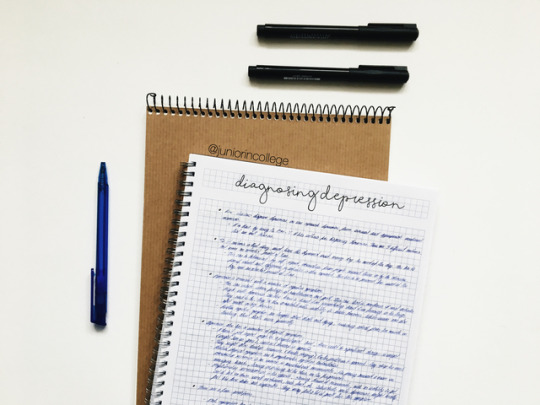
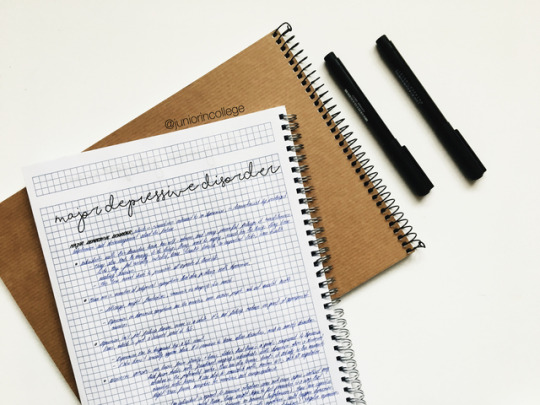
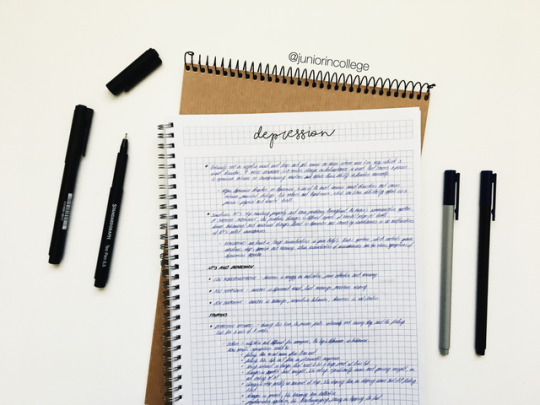
28.6.17 // Revision notes
Here are a few photos from my summer revision sessions! Keeping it super minimal in these photos!
-Eve
178 notes
·
View notes
Photo

As someone doing an English degree, I know how hard it is to read efficiently when you have 50,000 books and only a few weeks to read them (i’m exaggerating a little ofc). I also know that not everyone enjoys reading and I know how easy it is to leave reading to the last minute because ‘it’s only a short novel’. Well, here are some tips to make the most of your time and read efficiently, when you don’t really want to, don’t have the time to or would rather be doing something else.
1. DON’T RE-READ. I regularly see tips that say to get the most from a book, you need to read it at least twice. Ignore that. If you’re like me and have 3 books a week (minimum), you don’t really have the time or the patience to read them twice. Instead, read them once, but slowly. Take your time with the first read and actually understand it, instead of reading it once as quickly as you can and trying to find time to read it again in a futile attempt at actually understanding what you’ve read.
2. SET YOURSELF TARGETS. A key part of reading efficiently is actually reading the book. So set yourself daily targets of how many pages or chapters you need or want to complete. Set a target that is manageable and set them to cater to the events that occur in your day. Say if the book is due Friday and you start reading on Monday, but you have a lunch date with your friends on Wednesday and you really need to study for your biology exam which you care about more - set yourself reasonable targets to accommodate those things rather than pushing the reading aside completely because you’re ‘too busy’.
3. CHAPTER OVERVIEWS These are good for remembering details of the book when you are finished. After each chapter, spend a couple of minutes writing a chapter overview. Note down any important events, characters, themes and settings. Lined post-it notes are good for this, but you can always put them in a notebook too. I usually put the post-it notes on the last page of the chapter, so I can flick through the book after and know which chapter it is for, but again - do whatever feels best for you. If your book doesn’t have chapters or very few, maybe do overviews every 20-50 pages, depending on the length of the book. These are just to make your life easier and so you don’t have to remember every single chapter. You’ll have the overviews to refresh your memory.
4. HIGHLIGHTING AND TABS While you’re reading, highlight - or tab if you’re uncomfortable with or can’t highlight the book - in different colours the different things you need. Usually this is themes, characters, settings, literary devices etc, but also highlight or underline things that stand out to you. Even with highlighting, it’s good to tab the pages so you can find them again. If you aren’t comfortable with marking a book, you can do this in a notebook, but it might take a little longer writing out the quotes. Remember to make a key of these colours, because you will need remember what each colour is for.
5. DON’T GET COMFY It’s very easy to get comfortable when reading and not take in anything. You need to be on your game the whole time, no matter where you’re reading. Feel free to put on study or relaxing music, but don’t get comfy. Sit at your desk or on your bed with your back against the wall, so long as you tell your body that you’re studying and not just reading for pleasure. You don’t want to be reading and miss important things, not when you’re short of time. You can get comfy when you’ve finished!
6. DISCUSS You never truly realise how much you understand a book until you talk about it. When you’re finished reading, you’re not finished studying the book. Discuss the book with someone. Even if they haven’t read it themselves, talk to parents or friends. Tell them that you’ve been reading X and you found this, this and this interesting, but that one scene confused you. Discussing the book helps and sometimes people can help you grasp a clearer understanding of your text.
7. USE STUDY AIDS SparkNotes and Smoop are useful study aids and will be a life saver. Please don’t rely on them. Just using them instead of reading won’t work and your teacher will know. But they will help your understanding and will help you pick up bits you might’ve missed. They will also help with contextual information and they’re good for an overview when you’ve finished. Don’t use them before you’re done reading though. Trust me, it’s for the best.
8. RE-READ I don’t mean re-read the book. Re-read your notes the day before the book is due so you can fill in any blanks in your notes and understanding. Anything that is missing can be filled in during that day before the book is due and you’ll feel super accomplished on the day. You can compile your notes into one notebook and prettify them now, if that’s what makes you happy or helps you. Make them useful for your understanding is the key part, of course. But just reading through everything will put it fresh in your mind.
9. CONTEXTUAL RESEARCH You can choose to do this before or after reading, but don’t do it during. Contextual research is generally boring (at least for me) but it is super useful for understanding or just to sound clever in an essay. It can also fill in a lot of blanks and help you get knowledge of what is happening. Literature and history have a lot of connections and knowing the history of literature and of your novel is super useful. Always attempt some sort of contextual research, even if it’s just reading those little intro bits in the classics or whatever.
10. RELAX AND REWARD So you’ve finished reading, research and making notes? Relax! Reward yourself. Get a cup of tea, pat yourself on the back and get an early night. You deserve it! Reading can be exhausting and if you’re gonna remember anything in the morning, you need some good sleep and to feel good about yourself.
And with that - HAPPY READING!
I hope this was helpful for everyone and if you need any more advice, don’t be afraid to ask me, your teacher, your parents or even your friends!
302 notes
·
View notes
Photo
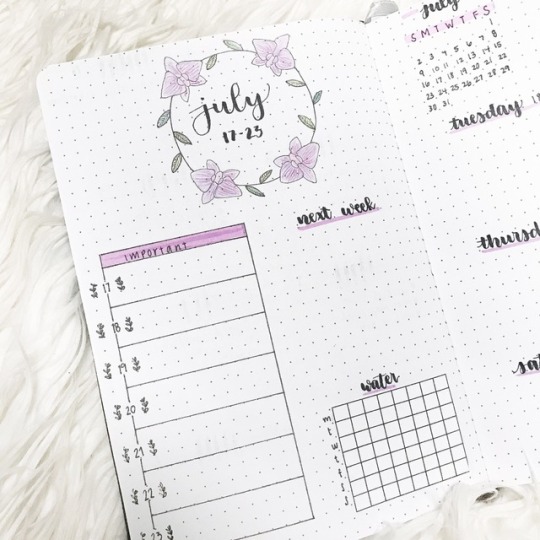
A lil orchids for next week 💜
372 notes
·
View notes
Text
📕 back to school essentials 🎒
it’s been a rlly long since I’ve last made a masterpost so I hope u guys will enjoy this!!! a lot of people have been asking me what supplies to use, where to buy them and since its nearly back to school, I made this post to help. majority of the items are from amazon and the brand muji because its really well-known and they have gr8 quality 👌 I hope this helps and I hope you all enjoy your back to school shopping to motivate you for school!
WHERE TO SHOP:
taobao - if you live in Asia / China, this is probably the best place to shop. everything here is cheap and most people get their supply from here because they sell everything for a cheap price. however, you need to know mandarin.
society6 -a really cool place to shop for clothes, phone cases, home decors, art print and lots of more stuff because the designs are made by artists and a portion of the earning also go to them + they usually have sales and free shipping. if you use this link, you get $10 off on your first order with a minimum purchase of $40
amazon / eBay - they also have lots of stuff and this is a really well-known place to buy anything you need if you live in western countries. majority of the items listed are from amazon and make sure to read reviews about the product
kawaiipenshop - use the code europhias for a 10% off!! they have a wide range of cute stationery supplies to get you motivated for school
STATIONERY / BACK TO SCHOOL
my fave backpacks: kanken - anello - check local stores - herschel
binders and refills: muji b5 binder - kokuyo campus - amazon - staples better binder - 5 star binder (choose a light one and the size like a5, b5, 1 inch, etc. also, for refills, go for grid / dotted / lined papers and you can buy dividers for diff subjects too!)
notebooks: 5 kokuyo campus dotted ntbk - 10 kokuyo campus lined ntbk - mead composition notebooks - 5 Muji lined ntbk - underestimate me - get shit done - salt water cure - marble notebook - phases of the moon - cute notebooks (use the code europhias for a 10% off)
erasers: paper mate - staedtler - pentel normal / retractable - cool erasers (use the code europhias for a 10% off)
pencil: Dixon pencil - BIC mechanical - amazon - faber castell mechanical - paper mate - staedtler mars pencil / mechanical
highlighters: zebra mildliners - muji highlighters - frixion highlighters - stabilo highlighters normal / pastel - sharpie - iconic
daily writing pens: muji pens (0.5 / 0.38 / 0.7) - pilot G2 12 pcs - pilot frixion - BIC 1.0 mm - paper mate retractable - zebra retractable
pencil case: muji pencil case normal / set - homecube big capacity - lihit lab big pencil case - floral canvas case - kawaiipenshop (use the code europhias for a 10% off)
Keep reading
6K notes
·
View notes
Photo

College application season is nearly upon us and I’m freaking out so here’s a masterpost with some of the most useful resources I’ve found! Hope it helps and good luck!!
BEFORE APPLYING
Narrowing Down Your College List
College Comparison and Application Checklist Templates
Tips for Narrowing Down Your College List by @gotocollegebutnevergrowup
How Many Schools Should You Apply To? by @smallmitgirl
An Imperfect Guide on Organizing Your College Choices by @sxudy
Ten Tips on Making Applying to Schools a Little Easier by @pencyls
7 Tips for Narrowing Your College List
College/Uni Criteria by @studeam
Creating the Perfect College List by @collegeconsultancy
College Tours: What to Expect & What to Ask by @howtogrowthefuckup
Standardized Testing
No-Study SAT Tips by @study-just-becos
The New SAT by @isabel-studies
Free SAT Practice with KhanAcademy
Quick and Easy Tips for the ACT by @smallmitgirl
How to Get a 30+ on the ACT by @collegerefs
SAT & ACT Resources by @intellectys
Free Standardized Test Prep by @studeam
Free SAT & AP Prep Material by @raincoffeebooks
Surviving Senior Year and Some Other Things You Should Know
College Wordbank by @bashfullynerdy
Senior Year Timeline by @applicantmusings
Advice for Surviving Senior Year by @sleepbreathestudy
College Applications by @universi-tea
Applying to US Schools by @cognitia
College Admissions by @futurechristinayang
Advice on the Application Process by @academicsapphic
The College Process by @foughtforme
APPLYING
The Application
The Anatomy of the College Application
A Step-by-Step Guide to Filling Out the Common App
What to Know about the Common App (Part 1) (Part 2) (Part 3)
Extracurricular Activities
What College Admission Officers Look for in Extracurricular Activities
How to Write Your Common App Activities List
How to Master the Activities Section
How To: Extracurricular Activity List
Essays
Would You Admit You? by @genericappblrurl
How to Write a Bomb A@# Personal Statement by @joolshallie
College Essays by @sootudying
Writing the Common App Essay by @ccllege
Cliches to Avoid for Essays by @appblrgirl
How to Write a Strong College Essay by @dartmvthensis
9 Essay Writing Tips to ‘Wow’ College Admissions Officers
The College Entry Essay: Tips from Admissions Officers at Leading Schools
An Admissions Dean Offers Advice on Writing a College Essay
Free Resources from the College Essay Guy
Personal Statements: A How To by @kiastudys
How to Make Your Personal Statement Suck Less by @hstudies
College Essay Masterpost by @studyfandom
The Evolution of a Common App Essay by @basic-appblr
Letters of Recommendation
The Art of Obtaining a Stellar Letter of Recommendation
How to Ask for a Recommendation Letter by @howtogrowthefuckup
Letters of Recommendation by @cyberstudies
How to Ask For a Letter of Recommendation: Complete Guide
Teacher Recs by @etudiance
Asking for Letters of Recommendation by @post–grad
Interviews
How to Ace that College Interview by @dartmvthensis
College Interviews by @cyberstudies
15 Questions To Know For College Interviews by @solustudies
The 14 College Interview Questions You Must Prepare For
How To Navigate College Alumni Interviews: Introvert Edition (Part 1) and (Part 2) by @basic-appblr
How to Nail Your College Admissions Interview
How to Ace Your College Interview
Other Elements
How To Make a College Portfolio by @studioblrcollective
How to Make an Art Portfolio for College or University
15 Quick Tips for Preparing to Audition
Secrets to Nailing Your College Audition
AFTER APPLYING
Financial Aid and Scholarships
Scholarships by @intellectys
It’s Ya Girl’s College Scholarship Masterpost by @jesussbabymomma
Scholarships! by @the-regular-student
How to Search For Scholarships by @adamparresh
How to Find Some F@#%ing Money for College by @howtogrowthefuckup
How to Fill Out the FASFA by @collegerefs
Scholarships: A Beginners Guide by @collegerefs
How to Increase Your Chances of Securing a Scholarship by @acebeforebaes
OTHER COLLEGE APPLICATION MASTERPOSTS
Common Application Masterpost by @lattesandtextbooks
College Application Websites Masterlist by @cyberstudies
A College Student’s Masterpost by @eruditekid
College Application Masterpost by @anarchonarcissist
6K notes
·
View notes
Photo


Lets start this day with a lot of macroeconomics ❤️ 1/100 days of productivity. I have to admit; no music is the best.
6K notes
·
View notes
Photo
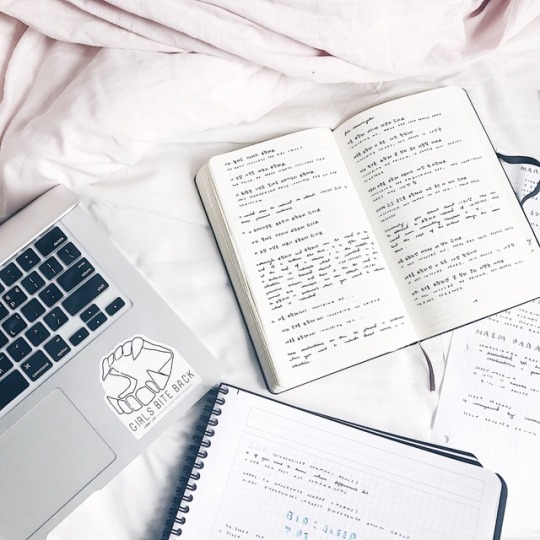

ig: studylustre
use my code “studylustre” for 10% off on kawaiipenshop.com! they also have free international shipping 🌟
5K notes
·
View notes
Photo
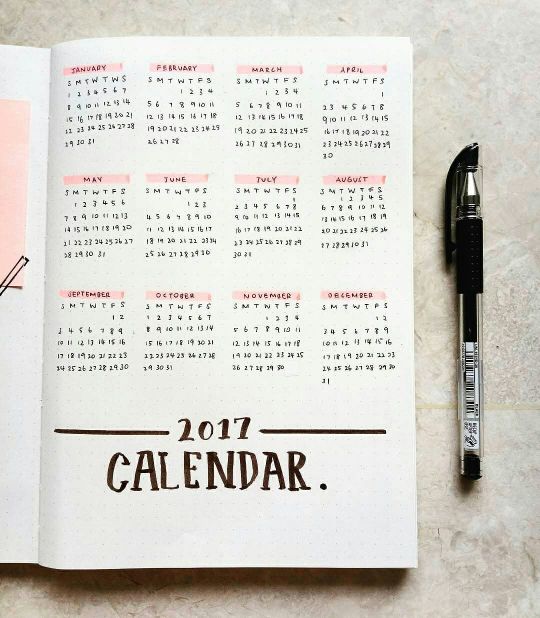
020217; i start at a new school tomorrow and i’m both terrified and excited. hopefully everything goes well! 😌
also, i have a studygram now, so maybe come say hi?
3K notes
·
View notes